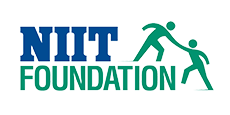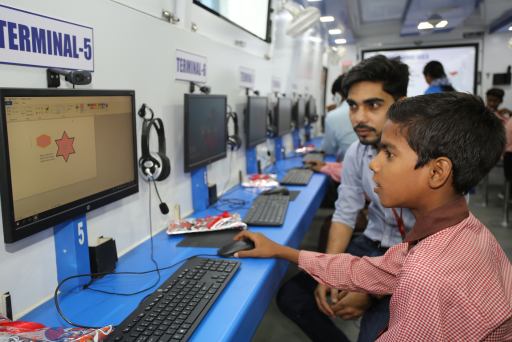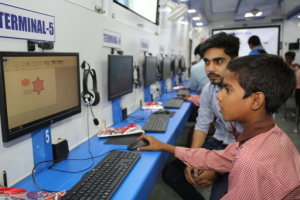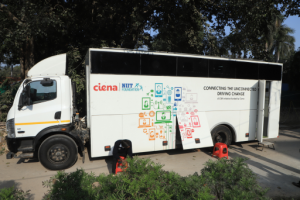Introduction
In today’s rapidly evolving job market, the importance of skill development cannot be overstated. As technological advancements reshape industries, there is an urgent need for a workforce equipped with the necessary skills to adapt and thrive.
The current education system often lacks a focus on skill development, which can be a barrier to employment, particularly for women facing additional challenges in the job market. For people from impoverished backgrounds, education is seen as a luxury rather than a necessity. Vocational training programs that address in-demand technical skills, alongside entrepreneurial and business acumen, can be a powerful tool to bridge this gap. This is especially crucial for underprivileged women, particularly those from rural areas or economically disadvantaged backgrounds, who may have limited access to desk jobs and often rely on manual labor.
Addressing Educational Disparities
According to the Indian government’s Periodic Labour Force Survey for 2020-2021, less than 16% of Indians aged 12-59 years received vocational and technical training. This disparity is even more concerning for women, with a mere 10% receiving training compared to 21% of men. Furthermore, people in urban areas received about three times more vocational training than those in rural areas. This is due to high dropout rates, a lack of proper training programs, and outdated curricula, among other factors.
Through the targeted skills training programs, several non-profit organizations work towards empowering this significant of workforce in contributing more meaningfully to the country’s economy. One such organization is NIIT Foundation, a not-for-profit organization which has incorporated an array of specific skilling initiatives to uplift the segment while also empowering them as financially-dependent individuals.
NIIT Foundation’s Mission and Approach
NIIT Foundation, a non-profit organization established in 2004, stands at the forefront of this mission, dedicated to empowering individuals through innovative educational programs and skill development initiatives. Enhancing women’s abilities via education and training is crucial in a world where gender parity is a fundamental component of sustainable development.
The organization, with its focus on skill development, recognizes the transformative power of education for women. They offer a range of vocational training programs specifically designed to address the needs and aspirations of women from diverse backgrounds.
A substantial disparity persists between urban and rural India in terms of education, employability, and gender equality. Even within urban settings, underserved areas exhibit similar inequities, particularly in gender inequality. This disparity results in girls and women missing essential education, higher studies, and skill development opportunities. Consequently, these women often remain financially dependent on the patriarchal members of their families and find themselves trapped in abusive and violent circumstances due to their lack of knowledge or awareness necessary for gainful employment. Their inability to contribute financially or intellectually to their families perpetuates a vicious cycle of orthodox cultural practices and traditions, affecting future generations as well.
The organisation is resolute in its mission to equip women and girls with the skills and education needed to secure meaningful employment. Through specialized digital literacy and financial literacy workshops, it aims to empower women with the knowledge to become self-reliant and to ensure that they and their children are aware of their rights. These workshops are conducted in both underserved rural and urban areas to maximize awareness and reach. Additionally, the Life Skills program enhances their self-awareness and provides them with the tools necessary to lead happier, more productive lives. This program is designed to address and break the generational cycle of gender inequality and to empower women to assert themselves in cultures where they have been traditionally oppressed. The organisation’s comprehensive approach is a testament to its commitment to fostering gender equality and empowering women to transform their lives and communities.
It also operates Women Empowerment Centers (WECs) that serve as hubs of learning and support. These centers offer a nurturing environment where women receive not only technical skills but also personal development workshops, mentoring, and access to networks. WECs play a crucial role in building confidence and resilience among participants.
The Digital Bus Initiative: Bringing Education to Doorsteps
One of NIIT Foundation’s pioneering efforts which has been a significant step in making vocational education accessible, particularly for women in underserved communities across India, is the innovative Digital Bus Program. This cutting-edge mobile classroom brings vocational training directly to remote areas, uplifting women who face barriers to educational access.
The Digital Bus offers tailored vocational training programs designed specifically for women. These programs include courses on digital literacy, computer skills, entrepreneurship development, and vocational training in sectors such as retail, hospitality, and healthcare. It conducts workshops and hands-on training sessions to enhance women’s digital skills, empowering them to navigate the digital landscape confidently.
It also focuses on fostering entrepreneurial spirit among women. Through specialized workshops on business planning, financial management, and market strategies, women are equipped with the knowledge and skills to start and sustain their own businesses. This not only creates opportunities for economic self-sufficiency but also contributes to community development. By addressing both technical skills and soft skills like communication and leadership, the Digital Bus prepares women for successful careers and entrepreneurial ventures.
In the diverse tapestry of India, where socio-economic challenges often hinder opportunities for women, NIIT Foundation stands as a beacon of hope and empowerment. Whether it is women like Archana, a homemaker in Owala, Thane, who, after years of being out of the workforce, joined the Spoken English and Personality Development Course at NIIT Foundation’s DXC Technology’s centre to revitalize her career prospects; or Lopita, from Balasore District, Odisha, who discovered the Everest Career Development Centre and soon transitioned from a data entry course participant to a successful tuition teacher, now running her own classes and contributing significantly to her family income.
Stories like that of Archana and Lopita highlight not just the individual triumphs but also the broader impact of the organization’s initiatives on women by expanding its reach and innovation in skill development in every nook and corner of the country. By providing targeted vocational training and essential life skills, it empowers women to seize opportunities, adapting to evolving market demands and contribute meaningfully to society, ensuring that its beneficiaries are prepared for the challenges and opportunities of the future job market.
















